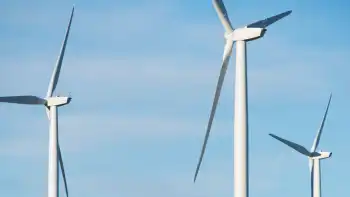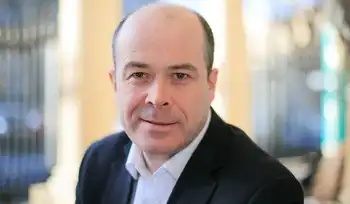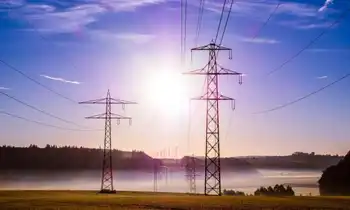Solar has cooled off – but for how long?
By Investor's Business Daily
NFPA 70b Training - Electrical Maintenance
Our customized live online or in‑person group training can be delivered to your staff at your location.

- Live Online
- 12 hours Instructor-led
- Group Training Available
Even as President Obama talked up hopes for solar energy in a recent speech, a few hours earlier one of the largest and best-positioned solar companies saw its shares plummet in after-hours trade.
Investors fretted over First Solar's (FSLR) warning, on its late Tuesday (Feb. 24) earnings conference call, that the short-term industry outlook has never looked more difficult. In regular trading the following day, First Solar shares fell 21.8% to 107.65, a more than three-month low, though its profit and sales in the fourth quarter both more than doubled from the year-earlier period.
Other solar firms also tumbled. SunPower (SPWRA) sank 8%, GT Solar (SOLR) 7.4%, JA Solar (JASO) 6.3% and Suntech Power (STP) 5.7%.
One question now is how the sector will make it through the recession to a promised land of big-scale solar deployments, bolstered by government subsidies and possibly mandates. Some see a shakeout on the way, as firms do whatever they can to move products.
"Prices are falling dramatically, they're starting to find that market bottom," said Lux Research analyst Ted Sullivan. "Certain players weakened by that will fall out."
He says global solar market revenue could dive 19% this year to $29 billion from $36 billion in 2008. He expects failures of "me-too players" with little to offer but capacity.
First Solar has an edge as the low-cost leader, selling a thin-film solar module it can now make for under a dollar a watt and sell for $2 a watt. Even with its lower cost, though, the company says it's going to give customers more time to pay, invest in some of their projects and consider cutting prices on volume deals.
Meanwhile, rivals who use polysilicon and charge on average roughly $3.25 per watt could be pressured to slash prices 18% or more this year, says Jefferies & Co. analyst Paul Clegg.
Most solar firms will survive the rough patch, but probably not all, says Julia Hamm, the Solar Electric Power Association's executive director.
"There are some businesses that likely don't have the financial means to get through slower times," she said. "But on the whole, those that have prepared adequately and have good business practices in place... will be able to make it."
A fundamental problem is that demand for solar cells and modules this year might be just half the available capacity, Sullivan wrote in a recent report. Amid recession and a credit crunch, would-be solar buyers around the world are having a hard time financing projects.
As a result, some solar firms are struggling, says Standard & Poor's analyst Mike Jaffe, and investors are taking note of the problems.
It has become "a little hard to put projects in motion," he said, adding that "investors have gotten nervous about almost any kind of company."
This month, China's Suntech reported a worse-than-expected loss, and LDK Solar (LDK) warned of one. Trina Solar, (TSL) also based in China, said its fourth-quarter revenue would beat views but its profit margins would suffer because it had to write down its silicon inventory. On February 24, the largest photovoltaic cell provider, Germany's Q-Cells, cut its sales outlook.
IBD's 76-stock Energy-Other group — largely solar and coal firms — has tumbled 72% from an all-time high last June and 11% this month.
Solar stocks plummeted in September, ahead of the financial crisis, on oversupply. Solar-panel manufacturing capacity essentially doubled in 2008 as demand shrank, particularly in Spain, where the government scaled back strong subsidies.
Solar panel prices contracted rapidly from a high in the third quarter, Clegg says, and now the industry awaits an end to the credit crisis.
Analysts say a culling could recharge the solar market.
Failures of weakened vendors would start "reducing some of that excess capacity, which is good," Sullivan said. He says price declines are decelerating and he sees the solar market "resetting."
Government subsidies are remaining largely intact worldwide and are rising in the U.S., Clegg says.
"China's the big wild card now," said Sullivan, in terms of whether it will step in to back up its solar producers.
Solar, though, got a boost in the U.S. from the economic stimulus package. A part of the bill allows a 30% tax credit for solar that can be taken as a rebate, Hamm says.
"We're going to see a pretty drastic shift thanks to that legislation in the next couple months," she said.
Hamm says utility-scale solar project announcements are now being made almost weekly, though projects take four to eight months for regulatory approval.
More talk about regulating carbon dioxide emissions in the U.S. and worldwide is being heard, boding well for the solar industry in years to come.
"If there is a rough time ahead for the industry, my expectation is we're talking about a matter of months, not years," Hamm said.
She expects "major growth" ahead.
That "ahead" might be a bit up the road, according to First Solar CEO Mike Ahearn.
"Over the midterm — let's say three to five years out — and beyond, the market outlook for solar power has never been better," he said on his company's earnings call.
Meanwhile, like housing, solar has become a buyer's market for whoever can swing the financing.
Price cuts "are obviously not good for solar module makers, but they're good for folks owning and installing these systems," Clegg said.











